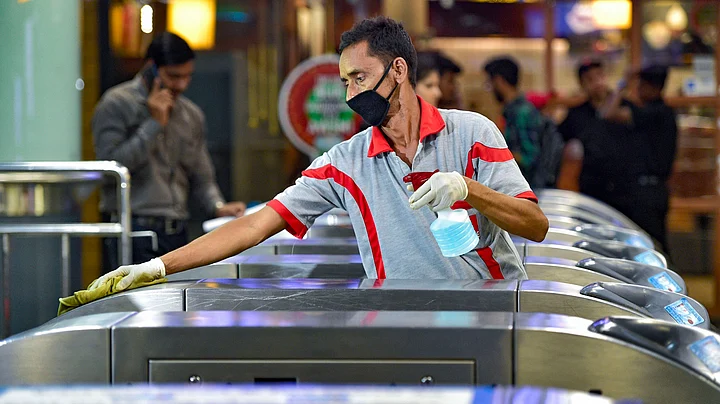The Indian Council of Medical Research (ICMR) on Thursday, March 19, released a report of the randomised testing it has conducted to ascertain if there is community-wide transmission of the novel coronavirus in India.
ICMR has been the nodal authority for testing for COVID-19 in the country. The report says that since 15 February, ICMR has initiated sentinel surveillance to detect community infection in the country. The surveillance sites have been scaled up from initial 16 to 51. as of 15 March. Of the 826 samples of people with severe acute respiratory symptoms, none have tested positive for coronavirus.
ICMR plans to extend its surveillance to areas that have reported COVID-19 positive cases.
By its current definition, ICMR doesn't believe we have community-wide transmission in India at present, but they haven't ruled out stage 3 of the outbreak in India.
India's 1st Domestic Case of COVID-19?
However, ICMR's current analysis is question by the 2nd case who has tested positive with COVID-19 in Tamil Nadu. A 20-year-old man, who travelled by train from Delhi to Chennai, tested positive for COVID-19. He has no travel history to any coronavirus endemic country, no recent flying history, and no contact with a COVID-19 positive patient.
The man belongs to Delhi and is currently in the isolation ward at the Rajiv Gandhi Government Hospital in Chennai. While contact tracing has begun, the man showed no symptoms on the train. He displayed symptoms a day after arriving in Chennai and immediately visited the hospital.
The first case in Chennai had a travel history to Oman. The young 20-year-old might just be the 1st reported 'domestic' case of coronavirus in the country.
Experts FIT spoke with, as early as March 5, warned of community-wide spread, with Prof Ramanan Laxminarayan, Director, Center for Disease Dynamics, Economics and Policy, telling FIT in an interview that chances are there are already many more cases in the country. (Watch the interview here). He had warned of community-wide spread in India even earlier when the cases had not been reported in India.
In an interview with FIT, well-known virologist Dr Jacob T John, former chief of ICMR's Advanced Scientific Research had warned of an 'avalanche of cases' by mid-April, calling into question the lack of testing by the government. He had pointed out how the government's current restrictive testing strategy was akin to wishing away the disease.
(At The Quint, we question everything. Play an active role in shaping our journalism by becoming a member today.)
